The Sunday Poem: “Nina As In Nina Simone” by Arya F. Jenkins
This narrative poem is informed by quotes and stories in What Happened, Miss Simone? the 2015 Netflix biographical documentary about the singer/artist’s life and art
...This narrative poem is informed by quotes and stories in What Happened, Miss Simone? the 2015 Netflix biographical documentary about the singer/artist’s life and art
...When in spring/Miles’s horn awakens/The nodding giant of the streets…
...We like to immortalize talent in this culture, and in so doing, often decontextualize it, absolving it of complexity and stains. Media especially likes to make angels out of demons, and vice versa, stripping the truth out of images and ideas.
In the case of Chet Baker, William Claxton’s photographs helped especially to immortalize the singer and trumpeter, fixing him in time and space, freezing an idea of him as beautiful, ethereal, ideal.
Chet Baker is almost always remembered as the
...I am a bastard son of the late great Chogyam Trungpa, a Tibetan Buddhist teacher who came to this country in 1970, amassed many followers and bedded many women, among them, my dear mother. My parents never married. My mother left my father and moved with me to the Big Apple when I was still a toddler. While my mother met and married a broker named Irv and had my sister Pearl, my own father went on to become a famous teacher and big lush.
...In the underground of how it used to be, in days long ago when things were quite good, when the only bad thing, if you want to call it bad, was poverty, which was longstanding, a dull ache of years that traveled with you through good times and bad and sometimes sang you to sleep like a sad horn, bwa la la la (high note) bwa la la la (high note) bwa la la, in that time, the song of poverty that belonged to everyone belonged also to Noname.
Noname, pronounced Noh-nameh, ran the bleak streets then 60 years ago when the world was kinder, a better place, where murder was just, well, murder, and horror, ordinary, conceivable, and every person, regardless of how they appeared, who they were, part of a diverse evolving unique American gyroscopic system. Even the most jaded soul understood being different was natural, even if your difference was made of so many facets, no one thing stood alone and nothing alone could capture it–save poverty herself, true interpreter of shades and depths of differences, which we celebrated on saxophone streets, in piano bars and when looking to the heavens for inspiration in the form of
...In July of 2012, Arya Jenkins’ short story “So What”—a story about an adolescent girl who attempts to connect to her absent father through his record collection – was chosen as the 30th winner of the Jerry Jazz Musician Short Fiction Contest. When that outstanding work was soon followed up with another quality entry with jazz music at its core, I invited her to contribute her fiction to this website on a more regular basis. We agreed to a commission of three stories per year, and tomorrow’s publication of “The Piano Whisperer” is her 15th story to appear on Jerry Jazz Musician.
I recently received word from Ms. Jenkins that Fomite Press, a small, independent publisher out of Vermont whose focus is on exposing high level literary work, will be publishing these stories in a collection titled Blue Songs in an Open Key. Publication date is
...The winter I ran away, I moved into a garret in Provincetown, where I wrote poetry under the light of a candle far into the wee hours. Out my window, two stories up, I could see snow glistening on slanted rooftops that led like an uneven staircase to the bay. Below me, a twisted narrow path led to Commercial Street, peaceful and stark as an unwritten page. It was 1973 and I had run to the end of the world as I knew it to find freedom.
I knew Provincetown from spending summers with my dad and Grandma Tess in her cottage in Truro. It seemed she’d lived most of her life since Grandpa’s passing as a beachcomber. I liked following behind her when we collected
...Allie drove her taxi with a smart ass attitude, smacking gum ceaselessly, and wore a Yankees cap backwards on her head on the job, even though she’d never watched a baseball game in her life, didn’t even like the game. Her dad had named her after a pitcher who’d won five straight World Series and Allie was always grateful that pitcher hadn’t been named Lefty or something like that.
Allie’s father had been the true baseball fan and Allie wore his cap in his memory. His real gift to her was love of music, jazz in particular. In her cab, she listened to WBGO, 88.3, remembering times she hung out with her dad in the garage listening to Miles Davis, Chick Corea, Wayne Shorter, experiments in sound, beautiful chaos while he fixed things. The garage was Bert’s space and his peace, or rather, the music was, and the smoke and silence that rose between them accentuated this. Whenever the strangers she drove around asked about her father, Allie always told them, “He went the way of the Marlboro man.” Cancer.
It surprised people to hear that she, a Millennial should enjoy jazz. “Jazz was like my Gerber food,” she liked to say. As a teen she dug hip hop enough to explore its fusion with jazz, but the fusion didn’t
...That winter we lived among mice in the Berkshires, in a little cabin set not far from a large white clapboard house that belonged to the owner Betty, who was a widow. Two steps up to the cabin did nothing to keep the mice away. Their constant tweaking and bustle made me feel I was living in an indoor forest. Betty, who was a nice old lady, warned us. “You’ll never be able to keep the mice out. If you can stand them, the place is yours.”
We had come up to the Berkshires figuring we might have to rough it, but had no idea. Van and I had been together about two years then. The summer before we had been married on a beach in
...“What a shame,” people always said whenever they saw the two of them, Jeremy and Jade. What a shame the beauty of the boy had escaped the girl, who had her mother’s small oval face and father’s prominent nose and small dark eyes that were filled with a peculiar, almost unnatural intensity. “Such a shame,” relatives observed unabashedly at family gatherings. The remaining phrase that hung in air unspoken was, ”that she isn’t the beautiful one. “
To herself in the mirror, Jade’s own face and visage seemed fine, just a part of her, not even all that consequential. Didn’t brains and character matter more? She was striking much in the way Zelda Fitzgerald had been—a beauty you could not capture in photographs, more in movement, gesture, articulation. Somewhere, not far from the small, provincial town where Jade lived, where people stared at you if you did not fit a mold, there were people like her who were different and proud of their differences and she looked forward to meeting them one day. In the meantime, she would have to deal with challenges.
Growing up, many of them had to do with her brother, who was two years older. Although Jade garnered high marks in school, not much was made of it so
...She stood in a room at The Met glancing at the painting on the wall, which was of two women kissing. From her vantage point, standing slightly away and to the side, the two women lying together interlocked in bed appeared cushioned awkwardly in space, free-floating yet connected.
The painting was by Henri Toulouse-Lautrec, the alcoholic French dwarf artist, and she tried to imagine what it was like living when he did in Paris at the time of the painting, 1892, and what it might have been like for these two prostitutes and others like them who often turned to one another for relief from a world of men then.
Mireille, it was reported, was one of the girls in the brothel in the Rue d’Amboise, when Lautrec was commissioned to create a series of panels about the lives of the girls there, and she was one of his favorites. He visited the salons of the brothels in the Rue des Moulins and Rue d’Amboise many times to study and paint the women, who felt very free to be
...She was born into a family of musicians. Her father had played bass in a jazz band and traveled with Dizzy until an accident had cost him his arm and his career. Getting out of a limousine that had stalled on the highway en route to a gig in Chicago, he opened the car door to get out at the wrong time, just as a truck was passing.
“C’est la vie” he always said about that, as if it meant something. He had to go on, a musician without a limb, without his instrument, because he was a man and had children and a legacy to uphold through them, but inside, where nothing touched him, he felt as torn as his shoulder had been that night. Something had shifted. Only his wife, his gentle, meek and attendant wife who saw him sitting at the edge of their bed each night head bowed counting his blessings, all but one, only she knew what
...Chantal Doolittle wasn’t like anybody else she knew. Who else, for example, would stand transfixed before a record player or stereo, still as stone while listening to music — not merely attending to it — her very cells taking in the song, calculating and absorbing. “That girl is special,” Nana Esther always said.
When she was a kid and Motown was the thing, Chan would sing Marvin Gaye’s tunes to her grandmother in their high ceilinged apartment, where, more often than not it was soul music, the harmonizing voices of The Four Tops, The Temptations, The Supremes, drifting in from the surrounding windows and disappearing into the sky that was perennially a washed out gray, as if there was an invisible flag always at half mast, hanging outside heaven. From the time she was five or six, all Chan had to do was hear a song once and she would know it. She knew all the Motown tunes word for word, and sang them right on key, perfectly, which is why Nana Esther dubbed her, “my little songbird.”
Of course, there was nothing little about Chantal, but, being her grandmother’s one and only, she was “a little one” to her. Chantal was tall, big for her age, and when she developed as a young woman, busty too. She stood out even before she opened her mouth, due to her attitude. Her nana had taught her to be “confident as a man,” and she had seemingly
...Club Havana was known for hosting decent Afro-Cuban jazz bands. There was dancing Thursdays through Sundays, and Sunday afternoons, the management handed out free cigars. Hector became close to the house band, whose rhythm section inspired him. He thought the drummer Manny was off the charts. Completely bald, he wore leather bands that cinched his pump wrists as if to keep his hands from flying off his body whenever he played fast and furious. A skinny, short guy played bongos, and a drunk worked the tumbadoras. Jorge, Carlos and Javier, all dapper guys, played horns. As if to distinguish themselves, one wore a mustache; another, a hat; and the other, wire rimmed glasses. Additionally, there was a young Julliard graduate on piano, a white-haired Cubano on flute, and a sax player who looked exactly like Lester Young. One afternoon, before their gig, Manny and Hector got to talking, and Hector started messing around on the tumbadoras, imitating what he had so often seen and heard. Manny raised his eyebrows and cocked his head. He liked this kid, and his sound was good.
“Why don’t you come hang with us this weekend. A few of us like to jam at Columbus Circle. Come along and let’s see how you work those congas in a group.”
Over the course of the summer, Hector hung out in the park. It was there he met
...1. Savoy Blues
Mercies would have put blues on the menu if it could, but that was a province of the kitchen, where I worked four and a half months too many. I heard actual blues music and caught a gust of air conditioning whenever I snuck through the dining area early in my shift to use the guest bathroom before customers arrived, passing the line of booths next to the orange and black walls on which hung colorful modern paintings of jazz musicians and the
...
The publication of Arya Jenkins’ “Epistrophy” is the third in a series of short stories she has been commissioned to write for Jerry Jazz Musician. For information about her column, please see our September 12 “Letter From the Publisher.” For Ms. Jenkins’ introduction to her work, read “Coming to Jazz.”
__________
Disenchanted leaves fell early through the trees the summer I left my life for an ashram. The path to the ashram snaked into the woods not far from Tanglewood and reminded me less of where I had been than where I was going with its rotund emphasis on kindness and formality-Within a year I would be studying Buddhism in a monastery and teaching English at Cornell in Ithaca.
I was attempting to put a punto finale to the moneyed nonsense in which I’d lived too long in Fairfield County, and wanted to quell my fulminating instinct, my destructive fires and find some kind of peace and stability, even at the expense of boredom–which may have been expecting too much.
...My friend Carl lived in a house full of ghosts with an evil sonofabitch brother who stole his shit, I mean all of it. But Carl himself, man, Carl was good as gold. He would give you the shirt off his back–everything, and did.
I moved in with my ex-old lady across the street from him in the late 80s when I was drying out and desperate for change. Marcy took me in, even after I had been such a dick. She knew it was the booze made me sleep around, and even though she kicked my drunken ass out on the curb, she took me in once she saw I was sober and clean. By then, she was already shacked up with a polite, fat, slob who was everything I wasn’t or would ever be.
Homestead Avenue, where we lived, was a pleasant street in a nice section of Fairfield called Black Rock, near the water. At the time, people were starting to navigate to the hood, although since then real estate prices have dropped due to the many storms–there have been too many storms in the area, man. But because of Black Rock’s proximity to the sound, which is like the sea, artists and strange people gravitate there.
I noticed Carl right off the bat. You couldn’t help but see him sitting on his porch with his supersized feet, head and limbs, a Franken monster. So I crossed the street one day to meet my neighbor, who looked a sorry sight–blackish long hair
...On the occasion of my 12th or 13th birthday, my father presented me with my own copy of a favorite album of his, Dave Brubeck’s Time Out and said, “This music is going to change your life.” The music sounded like nothing I’d ever heard. It was original and different and piqued my curiosity although I would not embrace it until later in my life. In the early 90s, when I was reading my poems in cafes that often played jazz in Connecticut, New York and Massachusetts, I started really listening to the music, and found it captivating.
...Whenever I’m pissed off, I escape to the pit. Out the kitchen door, fists deep in the pockets of my tight ass jeans, I head towards the woods back of the house.
I cross the backyard, past Moreno, the poor chained up son-of-a-bitch boxer. Rosa clinches his leash, pulling him close like a kid. The poor son-of-a-bitch tenses as I go by, his spindly legs and stubby tail shivering at my wrath, ears perked, head cocked – Was up girl, grounded again?
...In this edition, Rife writes about jazz novels and short stories that feature stories about women, written by women.
...“Community Bookshelf” is a twice-yearly space where writers who have been published on Jerry Jazz Musician can share information about their recently authored books.
...This edition features poetry chosen from hundreds of recent submissions, and from a wide range of voices known – and unknown – to readers of these collections. The work is unified by the poets’ ability to capture the abundance of jazz music, and their experience with consuming it.
.... . Photo William Gottlieb/Library of Congress Charlie Parker is frequently found on the lists of noted critics and musicians answering the question, “What are 3 or 4 of your favorite jazz record recordings of the 1940’s?” This photograph by William Gottlieb was taken at Carnegie Hall in New York, c. 1947 . __________ … Continue reading “Reminiscing in Tempo: “What are 3 or 4 of your favorite jazz recordings of the 1940’s?””
...On March 11, 2019, .Jerry Jazz Musician.will publish the 50th.winning story in our thrice-yearly Short Fiction Contest. To celebrate this landmark event, we have asked all the previous winners (dating to 2002) to reflect on their own winning story, and how their lives have since unfolded.
This week’s edition covers authors of winning stories #’s 29 – 34
...Although only one story wins our thrice yearly Short Fiction Contest, since we typically receive well over 100 entrants, often times there are several worthy of publication. Our last competition, our 37th, was won by Kenneth Levine. His short story “Homage” — about the effect Chet Baker’s drug addiction had on a father and son relationship — was published on November 4.
A finalist in the competition was Adam Murray’s “Silent City,” an excellent story about “how we can’t have the things we can no longer have because they no longer exist.” In this case, what we can’t have again is the 1940’s jazz laboratory known as Minton’s Playhouse. When I sent an email to Murray requesting his permission to allow me to publish “Silent City,” he wrote back and agreed, informing me that he had written this story specifically for Jerry Jazz Musician and “from there just kinda’ crossed my fingers.” In that same email, Murray wrote; “I’m currently homeless in Australia and penned this piece with my back to the brickwork behind a little jazz joint here called Ellington’s, digging on the swing, the night and the street, so your acceptance is a fitting coda for me. I’d be honoured to appear in your publication with like minded souls and voices.”
Murray’s email is an extraordinary reminder
...In this edition of “Reminiscing in Tempo: Memories and Opinion,” noted critics and musicians list their favorite jazz record albums of the 1970’s.
...

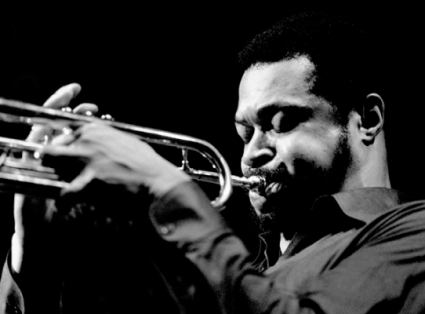
”Every Time” by Michel Krug
The Sunday Poem is published weekly, and strives to include the poet reading their work.... Michel Krug reads his poem at its conclusion
Click here to read previous editions of The Sunday Poem





Click here to read more short fiction published on Jerry Jazz Musician
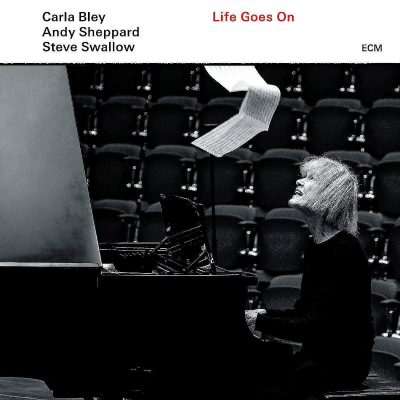

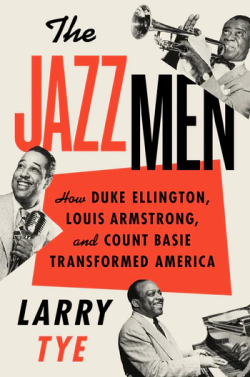







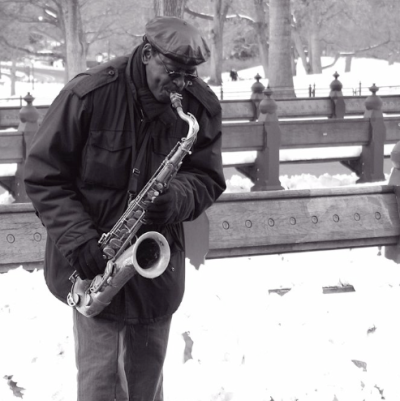
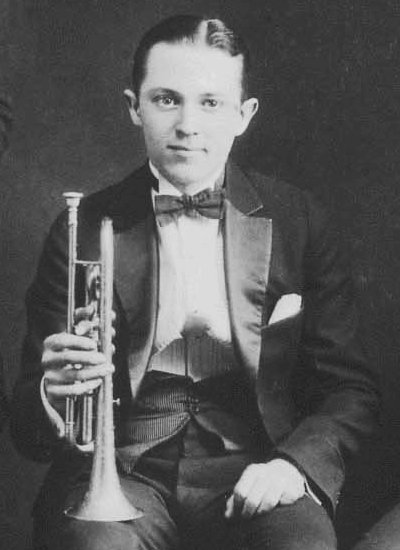
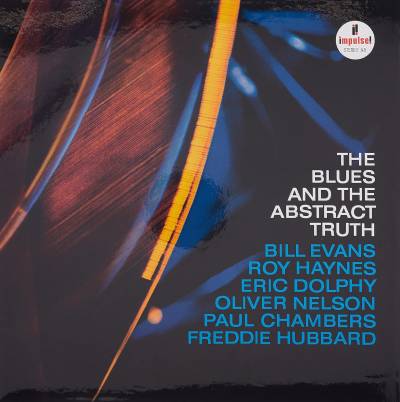


Click here to read more book excerpts published on Jerry Jazz Musician
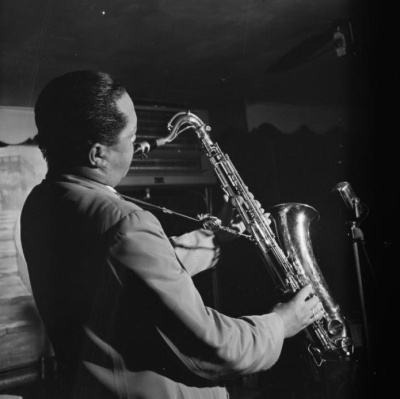
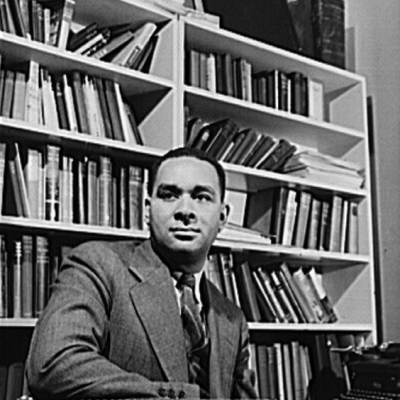




Dear Readers:
Reader funding helps support the expense of publishing this website, and to keep it free of advertising – which is a rarity in the dot-com world. Many thanks to those who have recently contributed, and to those who have done so multiple times. Your support is very much appreciated.
If you are able, please consider making a contribution? Information regarding how to do so is found by clicking here.
For viewing my long range vision for Jerry Jazz Musician, please click here.
Thank you!
Joe Maita
Editor/Publisher
,

